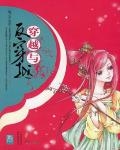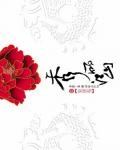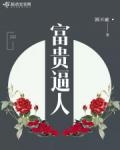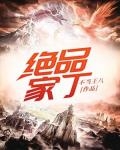Volume 2: The King's Way Chapter 181 The general trend
Just after Guo Jia finished his "seven wins and seven losses" theory, everyone who was affected had only a slight thought in their mind, just like hesitating between fried chicken and grilled skewers when ordering dinner.
As for the Ji-made soldiers and the synthetic laborers, their attributes and morale also fluctuated at this time, but they were still within the normal range. The only difference was whether their status today was good or bad.
However, it was these insignificant thoughts and fluctuations, when combined together, that caused the outcome to begin to favor Cao Cao!
This insignificance does not come from the influence of a certain individual, it also has a name, that is "general trend", or...luck!
Guo Jia had just used the saying of "seven wins and seven losses" to activate another major strategy that he had awakened to after inheriting "The Book of Heaven Volume Two: Destiny" - the general trend, in addition to his own "strange advice" and "ghostly strategies".
Different from its literal meaning, a more accurate name should be...the general trend is "driven" by me!
The effect is to "drive" the general trend, or "luck", by guiding each factor that seems very weak individually to produce seemingly insignificant changes.
Of course, this kind of "driving away" is not unlimited. First of all, it is necessary to guide the creation of a "height difference". For example, Guo Jia's seven wins and seven losses are a summary of where he thinks Cao Cao is "higher" than Bai Tu. Only in this way will the luck be drawn to Cao Cao.
In other words, you must find the opponent's weakness. After all, this weakness is something you don't have, or it may even be your strength. It can only be effective if both directions are within the effective range.
However, the impact of this flow of luck is limited. For example, the laborers transporting grain in Huainan would "occasionally" complain in their hearts when they were hot and tired. Guo Jia only further expanded this possibility.
It was just a complaint. After all, Bai Tu was "working for relief". He saved their lives when they were almost desperate. It was impossible for them to directly rise up in rebellion. At most, their subjective initiative and efficiency would be reduced...
And it can only be launched once against "each opponent" every year - the basis for judging the "opponent" is independent luck. For example, Bai Tu's side only has an independent luck, while in Jingzhou, the luck of Liu Biao and Huang Zu is vaguely separated, and can be regarded as two opponents.
Therefore, when Guo Jia opened his mouth, he directly counted out seven.
Other reasons, such as the Shanyue people causing chaos and the war horses not being able to adapt to the local climate, also made sense and led to the unexpected events.
But... saying that Lu Bu and Sun Ce wanted to alienate Bai Tu, and also saying that Bai Tu was just being "short-sighted" and being soft-hearted?
First of all, Lu Bu and Sun Ce have no intention of rebelling at all. If there are a hundred futures, the possibility of the two of them "rebelling against Bai" is "zero". If there are a million futures, there may be a future of "rebelling against Bai", but... such a small possibility is not something that Guo Jia can trigger at all.
As for Bai Tu's "womanly kindness", it is even more ridiculous.
Perhaps in the eyes of Cao Cao, Xun Yu, and many other people...even in the eyes of Bai Tu's subordinates such as Lu Kang and Yu Fan, what Guo Jia said does make sense.
However, this does not mean that this is the case!
In the eyes of Guo Jia and Xun Yu, Bai Tu's behavior was "only seeing the suffering of the people in front of him", and then overreacting to it, and even missed the opportunity to save the world. A true hero would "better benefit the people in the future" and would not do irrational things because of the suffering of a few people in front of him...
It's just like the death of Pan Zhang - in the eyes of Guo Jia and Xun Yu, that guy deserved to die, but... if they had to pay the price of disrupting the morale of the army for it, it would be better to keep him serving.
Of course, at least unlike Liu Zhang and Yuan Shu, it seems that Guo Jia and Xun Yu, although somewhat regretful of Bai Tu's "short-sightedness", recognize in their hearts that Bai Tu is correct. Guo Jia usually targets Bai Tu only because he is angry about Xi Zhicai's affairs, and he does not really regard Bai Tu as a villain or a scum.
But is Baitu actually "short-sighted"?
Obviously not. Whether it was executing Pan Zhang or not pardoning those who surrendered, Bai Tu understood the price he would have to pay before he took action.
However, in Bai Tu's basic worldview, everything he did was perfectly normal. If it were 1,800 years later, making any other choice would be unreasonable.
Even though the times are different, these two are Bai Tu’s bottom line that he cannot compromise on—a lower bottom line than marrying only one wife!
Guo Jia attributed this to "only seeing the woman's kindness in front of him", which does not conform to the actual situation...
In the end, Guo Jia only succeeded in five of his seven wins and seven losses, and also suffered two backlashes.
Like other luck-related abilities, Guo Jia's "Trend of the Times" also consumes his own lifespan, and the backlash will consume even more when it fails - most of the owners of "Book of Luck" are short-lived.
Historically, before the Battle of Guandu, Guo Jia offered the "Ten Wins and Ten Losses" theory to Cao Cao, who was seriously lacking in confidence, and enumerated Cao Cao's advantages over Yuan Shao.
In many aspects, there are suspicions of far-fetched claims, but... after the announcement of ten wins and ten losses, Yuan Shao and his advisers seemed to have been under a spell, and they made one stupid move after another. Not only did Yuan Shao himself execute Qu Yi and arrest Tian Feng, but his advisers also hindered each other in order to compete with each other.
When Yuan Shao was riding on Cao Cao, he disagreed with the simple mode and went straight to Xu Du, and insisted on defeating Cao Cao head-on; Xu You secretly defected to Cao Cao because his family members had committed a crime and were sentenced; not to mention Feng Ji, Shen Pei, Xin Ping, Guo Tu... they actually schemed against each other.
In the end, Yuan Shao, whose population and arable land were almost twice that of Cao Cao, and who had well-trained soldiers and sufficient food - equivalent to a GDP two or three times higher than Cao Cao's, and whose military industry accounted for an even larger proportion, was actually defeated by Cao Cao in the end!
After that, Guo Jia was also a "magician". He not only predicted the quarrel between Yuan Tan and Yuan Shang after Yuan Shao's death, but also predicted that Sun Ce would be "careless and unprepared... an assassin would ambushed him and he would be the enemy of one man". He believed that Sun Ce usually did not pay attention to protecting himself and had killed many powerful people in Jiangdong, so he might be killed by an assassin one day.
However, Guo Jia eventually died of illness on his way back to Xudu after Cao Cao completely defeated the Yuan family...
Guo Jia in the Cheng Ji world has more direct abilities. He healed Cao Cao seven times and swallowed five of them.
Every successful milk was aimed at the "big picture" - Guo Jia was too inexperienced now. Thinking carefully, the milk aimed at "many people" was successful, but Cao Cao sprayed out the milk that targeted Lu Bu, Sun Ce, Bai Tu and others...
Obviously, this kind of "milk" that is too targeted has higher requirements for success because it is more likely to make mistakes in judgment.
Precisely because the successful strategies were all aimed at the "general situation", Bai Tu now does not feel that he has been "cursed" (fog). However, he discovered a few days later that... the efficiency of grain transportation in the rear had decreased by 20%, his troops were slightly afraid of fighting, and the disaster of Shanyue showed signs of intensifying!
The reason why it was noticed so quickly was because of Bai Tu's personnel inspection system.
Similar to the "KPI assessment" system that many people in later generations hated, Bai Tu strictly ordered the Ministry of Personnel to reduce all kinds of exaggerated adjectives in the evaluation and to force the listing of data so that Bai Tu could visually see their political achievements every ten days.
For example, in Huainan, all counties along the grain route have included "grain transportation efficiency" in their assessment...
However, in the latest round of assessments, Bai Tu discovered that the performance of officials in charge of grain transportation in various counties in Huainan had collectively declined.
When Bai Tu wanted to find out the reason, he discovered... it wasn't just one person who was holding back, but everyone was responsible.
In this way, it doesn't seem that anyone has done something particularly bad, but rather that everyone is not good!
"The grain route from Jiangdong to Shouchun for the war in the Central Plains is indeed too long..." Bai Tu said with some regret.
Precisely because the collective performance had declined, Bai Tu felt that the problem lay in his own decision-making.
However, Bai Tu had no better solution for this problem. Cao Cao and Liu Bei definitely didn't have any extra food to lend to him, especially the former... He wouldn't lend him even if he could!
We have no choice but to start with subjective willingness and hire more Shouchun people to take on the task of transporting grain. This way... they will be more motivated.
Because many Shouchun people had their stored food looted before, the disaster relief efforts are now the greatest, and a lot of laborers have been provided through work-for-relief.
Especially in Shouchun City, except for some wealthy families with enough servants to save themselves, many others were on the verge of destruction. Fortunately, Bai Tu's relief food was delivered in time and they were relocated south.
As for the countryside...it's actually better!
In small chaos, people live in the city; in big chaos, people live in the countryside. The ancients were right.
The Wu Fort built by the rural clans had become the best means of self-defense against the rebels. Coupled with Bai Tu's quick reinforcements, the losses were smaller than expected .
After all, those chaotic soldiers had no discipline and no command. Most of them were dozens or hundreds of generals colluding with each other. It was impossible to gather too many troops to focus on attacking the enemy, so Wu Fort played a significant role.
What Cao Cao did in Xuzhou before also served as a reminder to everyone. Now there is also a trend of building Wu forts in the Central Plains and Huainan.
Bai Tu had told Lu Lingqi before that Wubao was the product of mutual distrust between the military and civilians, and that this distrust was not caused by one party alone, and was not all caused by ambition to fight against the government...
Under Bai Tu's order, many of the disaster victims in Shouchun who were migrating south were hired locally as grain transporters to transport grain from north of the Yangtze River to south of the Huai River.
At the same time, the frequency and intensity of the "Persuasion Team"'s preaching were also increased to boost the army's fighting spirit and morale and restore their confidence.
As for the problem of Shanyue rebellion... Gao Shun's KPI has soared recently. Obviously, it has only given him more opportunities to make meritorious deeds. It will only consume more food, which is not a big problem. Bai Tu didn't care too much about it.
To some extent, Bai Tu’s “KPI assessment” can be said to be the natural enemy of Guo Jia’s “general trend”.
If we do not use various data representing efficiency directly, it would be difficult to find problems with the subtle influence promoted by Guo Jia if we only focus on one aspect.
If left unchecked, the losses will further increase...






